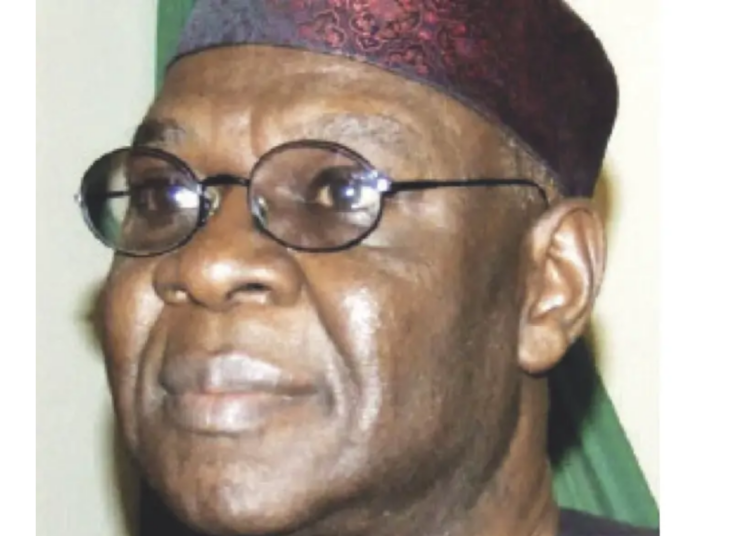The Naira as against the dollar recently reach as high as N1000/dollar. The new CBN governor has rolled out various policies to strengthen the Naira, but with not much positive results. In your opinion, what can he do differently to achieve the needed change?
There is no quick fix to the Naira as against the dollar. With this in mind, the way the Naira is fluctuating reflects the overall economy policy of Nigeria, which touches all areas of the economy including production, investment, trade, distribution, manpower, education and health, among others. The simple explanation about the value of the Naira depends on the quality of management, monetary and fiscal policies. Currencies are not supposed to stay in one place, they are supposed to fluctuate, but within a narrow band.
To answer your question, some people have suggested that we should start controlling the Naira again, by going back to square one. My response to this is that, we can’t go back to controlling the Naira. We are dealing with macroeconomics where things are so interrelated.
Some Nigerians also suggested that we redenominate our currency. I strongly disagree with them. Ghana tried it but this does not really address the fundamental issues!
Redenomination means when your currency is so depreciated that you need more currency units to effect a simple transaction, then you will have to re-dominate, by printing, say a new Naira, so that a thousand of the old Naira, becomes like one hundred of the new Naira.
Again, this arithmetic gimmick cannot work, in as much as we have not address the root causes of the Naira depreciation. The dollar rate just reflects the inefficiencies in our system through the demand and the availability of the desired foreign exchange.
We have to go back and correct the sources of the inefficiencies. The absence of adequate and efficient production, the absence of efficient allocation of resources through a free pricing system; that is what the Naira value is reflecting and that is what the government should be addressing across board. We can address some rather quickly. We can address the most crucial sectors, like the oil and gas, transport, and power sectors.
Government can start by creating an enabling policy environment for saving, investment, and production to thrive, to enable the country to reduce its overall dependence on foreign currency to import goods and services without compensating exports of its own. In this way, the Naira will be strengthened because we are reducing what we need to import or also earning to pay for it via our own exports. So, government should create an environment where our local contents, amply fueled from our rich material and labor endowment get more and more significant in whatever we are producing.
So in essence, we need to reduce our dependence on foreign savings and borrowings and improve our productive efficiency, among others. For instance, there is no reason why we shouldn’t be exporting our soups. Every ethnic group in Nigeria produces beautiful, tasty and rich soups. I can assure you that Americans, Japanese, Malaysians, Koreans and Brazilians will buy our soups. However, we don’t yet have the means to package, preserve and export the soup. To make this work, government would need to strengthen the steel and aluminum industry and even the chemical industry (because we need preservative chemicals to preserve the soup!!). By the time we start exporting, we would be earning so much Forex that our currency will begin to appreciate as Forex earning grow in relation to our needs.
In addition, we need to improve our economic decision making, reduce corruption, provide efficiency in the supply of infrastructure like power, rail, water, transportation and so on to get the Naira back to its value reflective of our resources and productive potential.
National debt is now in the excess of N87.4billion. How can Nigeria stop unnecessary borrowing?
Theoretically, when you borrow to produce, you borrow because you don’t have enough funds. You borrow because you only have Naira and you need foreign exchange to fund essential capital or materials and so on. You also borrow because you plan to use the money to boost local savings to finance productive domestic production generally.
No one should be against borrowing to pay salaries, provided it is for a short term, as the state internally generated revenue quickly grows to pay back the loan, within a short time in the budget year. However, as a rule, governments, like the private corporate and non-corporate sectors, should be borrowing to expand productive capacity. Government should not just borrow for consumption, they should borrow for investments that have the tendency to boost the economy’s capacity to produce goods and services!
Before borrowing, I will advise the government to assess more carefully, the reasons why it wants to borrow. It should not be because you want to allocate the funds to consumption, it should be because you want to make profit, engage labor, engage other aspects of the economy, to make the economy produce more robustly.
You headed a National Refinery Task force to ensure fuel products self-sufficiency through a more efficient National Refinery sector. Yet, in May 2023, the pump price of a litre of petrol rose from N184 to N500. About two months later, the price jumped from N500 to over N617 on Tuesday, July 18, 2023. How can Nigeria reverse this trend?
Yes! I headed a study team of experts a few years back (2012). The task force was to ensure fuel sufficiency. At that time, the Chinese offered Nigeria about $11 billion with little interest (two per cent over London Inter-Bank Offer Rate LIBOR), to build three Green-fields (new refineries). The team was so excited because we knew this would transform the oil and gas industry and help Nigeria to be fuel sufficient. So, we recommended that the Federal Government should accept the loan offered particularly because, aside the low terms, we would select the builders, (they did not impose their own builders on us); and we planned to build the three refineries in three locations: Lagos, Bayelsa and Kogi.
The committee were made up of heads of parastatals and other experts. We came up with a report and we expected the government to take the recommendations of the report seriously.
At that time, we didn’t see the reason to build a new refinery because Europe was slowing getting out of hydrocarbons and as such their refineries were not optimally utilised. So, they were refining at a very low cost. We could take advantage of that, by sending our crude to Europe, refine and bring back what we needed and sell the balance to boost our foreign exchange. End of subsidy in the oil sector! Government could then focus on other sectors of the economy that might need subsidy.
It is still not clear why we did not allow that plan to come on board! The $11 billion loan offered to us to build the refineries, was never accepted. Look at where we are now; refineries have been shut down, crude prices are rising and we who are producers are paying for it. It is like we do not produce crude. We are in the same jeopardy with people that do not have oil.
Since we have missed it at the early stage, what the government needs to do now is to go into outright privatization as was also recommended at that time. I wrote a paper on privatisation. We privatize to reduce the financial weight on government, in things that the private sector could do more efficiently than government. Rather than fixing the refineries itself, government can sell them off to private investors.
For privatisation to succeed however, government must lay down four criteria. One of such criteria is that, the refineries must be given to investors who do not have to go to local banks to borrow the offer price; it should be handed over to people who can bring in additional funds into the system. The people that will take over the refineries should be technical experts in the oil and gas field; those who have demonstrated experience in running a refinery, and finally, the company can demonstrate that they know how to transform and make them work!
If private entities are the owners of the four refineries in Nigeria, there would be competition and the price of refined products would be highly competitive and the benefits will trickle down to the end users.
Remember, the refineries will not only be refining for Nigeria alone, but also for export to other countries, thereby, saving our exchange reserve. At that time, there will be no more subsidy. The investors would likely expand capacity, expand the use of labour and satisfy the domestic market as well as export to other countries.
For instance, removal of fuel subsidy is certainly not a bad thing, but government should not have done it at one shot that naturally send spiraling cost increases through the entire system because of the built in lags in the entire supply chain alongside in elastic demand chain!!! Government should, perhaps, have spread the burden over two- three budget seasons, so that the overall impact would be absorbable.
I would also advise the government to fully privatise the power sector, to ensure that there is constant power supply plus reserves in consonance with rich power sources. They should hands off power and give it to those who can manage it at a fair price from generation through transmission to distribution to the consumer. All Nigerians want is constant power supply at an affordable price, to expand their businesses.
In essence, if government can privatise the power and oil and gas sectors, it will boost other sectors of the economy. Since the 1950s, governments all over the world are getting out of some so called security and critical sectors to allow the private sector to manage them within an efficient regulatory regime of clear cut rules.
Aside the straightening of our monetary (exchange rate, fiscal and debt policies and strategies), we should focus on getting the power sector and refineries privatized to viable operators; we should finance two prong northern and southern line wide gauge rails! These three major thrusts with revitalise investment and labor demand at a sufficient level to thrust our productive sectors forward.
October 14th is your birthday. As you clock 84, what would you say is your major contribution to the Nigerian economy?
Nigeria, in effect, by and large, made me whatever I am today and I consider myself lucky to be a Nigerian, growing up. I got a lot of scholarships and I never really “applied” for jobs, in essence!!
However with what the country has done for me, I would say I have contributed little to the development of the country. I came back to Nigeria in 1980 when I left the World Bank. I was just interested in contributing my quota to the development of Nigeria and also to have my kids grow up in their own country. My colleagues were shocked because they assumed that I had great prospects at World Bank.
So far, I won’t say I have done much, as I would hardly give myself that much credit, in terms of my contribution to public policy in Nigeria. A lot was on offer but only a few opportunities for adoption and implementation was possible at the end of the day!
One of the policies I formulated was on the economic restructuring of the Nigerian economy, but I was, to some extent, largely misunderstood. Restructuring means that you don’t just produce basic primary goods, but being more innovative through secondary value added processes. For instance, restructuring the agriculture sector, would mean, that farmers will not just be planting yam, for instance, but they need to be innovative enough to turn the yam to yam flour.
However, all hope is not lost. I still consider Nigeria to be one of the leading top 30 countries today. We have a lot of potential. Government must provide the opportunity for the people to showcase their skills.
I wrote a paper when I was still a Commissioner in old Imo state in 1984/85 that addresses the issues of the exchange rate, privatization, debt, and subsidy etc. These are basic things we must address to revamp and restructure the economy towards a high income and industrialised economy.
To some degree, we were getting it right much earlier. Our manufacturing was growing at about 15, 16 to 18 per cent and our economy was growing eight, nine to even 10 per cent. We can go back to this era, but it is not a quick fix. A lot of stakeholders have come up with ideas, on how to fix the economy. The government should have a way of seeking out and adopting and adapting the right ones and implement them.
How do you intend to celebrate your birthday this year?
While I thank God for making it possible for me to celebrate in tolerable good health, I want to mark my birthday, by launching the first of, hopefully a series of books. The first book addresses the root cause of our seemingly worsening economy, and humbly proffers some solutions. It highlights how the incentive system, including how our exchange rate, influenced the pattern of industries that developed from 1950’s to 1970 and thereafter!!
I have kept a whole lot of records of what transpired during my active years, while serving, which will also be revisited!
What do you do for leisure?
I have done it all! In the primary school, I was in the school band and the boys’ brigade. I was in various sports, javelin, high jump and football. But now, all I do is listening to my classical music and dancing. I also read a lot. If I see something interesting, I want to read it right away even not minding the hour!





